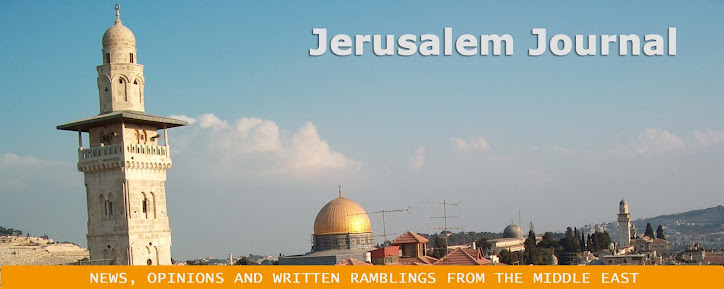DEHEISHE REFUGEE CAMP– It’s called a “drop and run.” The van rolls to a stop, an aid worker bursts out, hands a box to a person sitting nearby, jumps back into the van and peels out.
But it didn’t quite work out that way this time.
Foreigners are such a rare sight in the refugee camps that curiosity begets questions and an instant crowd. Members of Father’s House Bethlehem, the only NGO in the Bethlehem refugee camps, were swarmed by children and curious mothers who had nothing to do but gawk as the van maneuvered through the narrow streets of Deheishe.
They are advised to keep rolling, Father’s House Bethlehem director Joanna Watson explained, because a new terrorist group in the camps is ready and waiting to abduct foreigners. Plus, there is a Bible and a DVD of the movie Jesus in Arabic nestled amid the food and clothing in the boxes. Moslem extremists might seek to retaliate. Thus, the drop and run concept.
Despite the dangers and increased persecution of Christians at the hands of the Moslem majority, some believers are making their way to the area bringing support and a glimmer of hope to a beleaguered people.
“Even Moslems say, ‘You’re not going to the refugee camps! Why?’” Watson told Israel Today. “I tell them we go because ‘no one else goes to the camps and they’re human beings too. Jesus created everyone.’”
Moved by the need of Palestinian refugees in Bethlehem, Lisa Bourland, cofounder of Father’s House International in Kentucky, set up a permanent branch of the ministry here. They work with the Living Bread ministry of Karen Dunham, who heads up outreaches to the refugee camps.
In addition to bringing aid to the camps, the team is also establishing the Bethlehem House of Prayer just a five-minute walk from Manger Square. An around-the-clock house of prayer in Jerusalem, Succat Hallel, will lend worship leaders while the “BHOP” gets off the ground.
“I believe revival is going to burst out in Bethlehem,” Watson said. “You can see how open it is here.”
The team has transformed dingy rooms into offices and meeting space with peaceful yellow walls and wood trim. They painstakingly turned filthy, dilapidated bedrooms into an adequate hostel for volunteers and they are now renovating the prayer room, a large open space that overlooks more of Bethlehem and an Israeli neighborhood over the security barrier.
While helping Palestinians, this aid organization is atypically pro-Israel. Generally, ministries in Bethlehem teach replacement theology while antagonism against Israel runs deep due to years of tense relations and closed borders.
“We believe in the truths and promises for Israel, but we believe that the Arab people are entitled to the promises of God through Ishmael,” said James Edwards, who works full time for Father’s House Bethlehem. Edwards said people should come over the border to learn and pray, thus breaking down the walls dividing Israelis and Palestinians.
Bethlehem, a thriving tourist town until the second intifada (uprising) prompted Israel to seal the borders and cut off work permits for many Palestinians, used to be predominantly Christian. But the Christian population has plunged from an 85 percent majority in 1948 to just 12 percent of the town’s 60,000 residents in 2006.
In the past seven years, many restaurants, hotels and souvenir shops have been boarded up. Unemployment runs at 65 percent and higher in the refugee camps. If residents in Bethlehem proper are financially strapped, the camps’ residents are in dire poverty—even fellow Palestinians don’t go there.
“We want help—sugar, rice, food to eat,” Aziza Il Masri told us from her home in Deheishe. “The small children need milk. There’s no work here. My husband worked in Israel, but he died. I need medicine, but sometimes there isn’t any.” The United Nations used to help, she said, but for the past six months, no one has been by.
Aziza’s neighbor received an aid box, which looked awkwardly small in her two-room apartment where she lives with her son, daughter-in-law and their son. Their belongings are sparse: a stove top of two burners balanced precariously on a rickety table, a refrigerator and a mattress in one corner of the living room.
At the top of the hill in Deheishe, Im-Nabil stood outside her small home with her nine-year-old daughter who is handicapped. Hope rarely finds its way to her doorstep. Her husband Taleh is an invalid and can’t work. Sometimes friends or their grown children bring them money, but it’s never enough to get proper healthcare for Taleh.
Receiving a box of shoes, clothing and food was a pleasant surprise in the middle of winter. “Thank you,” she said, tears clouding her eyes. “Thank you.”
Jan 1, 2008
Subscribe to:
Posts (Atom)


